 |
- OTHER SERVICES VOICES:
- MARINES
 - NAVY
 - AIR FORCE
 - ARMY
 - COAST GUARD
 - POLICE
|
An up close and personal interview with U.S. Air Force Veteran and Togetherweserved.com Member:
SMSgt Alan Pongratz(1987-2011)
WHAT INFLUENCED YOUR DECISION TO JOIN THE MILITARY?
Honestly, I think my decision to join the military came from my immediate experiences as a civilian following high school and in college. I was not raised in a family where there was much money lying about, so I had a job where I worked 20 hours a week or 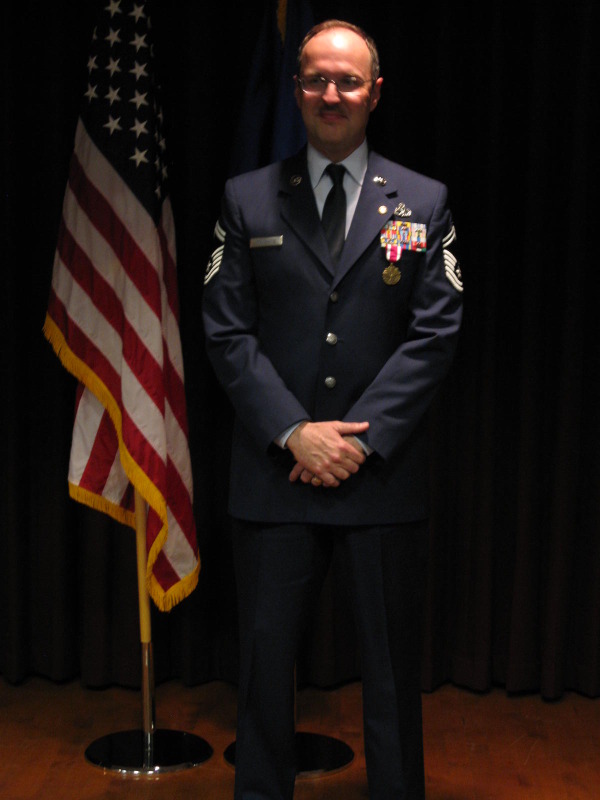 more after I turned 16 and had the ability to purchase a car. The thing I liked most about many of the early jobs I had was being part of a team, and being able to get trained on as many tasks as I could to help out and then doing just that. I found fairly quickly, however, that few folks in the civilian sector held the same work ethic, so after several years of searching, I remembered that my Grandfather and Uncle had some good experiences in the military, and that my Grandfather also learned a valuable trade working with turboprop engines. Once it became clear to me that most of the people in the companies I worked for after I left college were not really committed to much of anything other than themselves, I decided to seek a different path, and never looked back. more after I turned 16 and had the ability to purchase a car. The thing I liked most about many of the early jobs I had was being part of a team, and being able to get trained on as many tasks as I could to help out and then doing just that. I found fairly quickly, however, that few folks in the civilian sector held the same work ethic, so after several years of searching, I remembered that my Grandfather and Uncle had some good experiences in the military, and that my Grandfather also learned a valuable trade working with turboprop engines. Once it became clear to me that most of the people in the companies I worked for after I left college were not really committed to much of anything other than themselves, I decided to seek a different path, and never looked back.
WHAT WAS YOUR SERVICE CAREER PATH?
I enlisted in the Air Force in 1987, and came in seeking an 'Open Electronics' career path. During the career field 'wish list' picking that we 'open' folks participated in during BMTS, I found several great sounding jobs that were right up my alley, so I thought; Navigational Aids 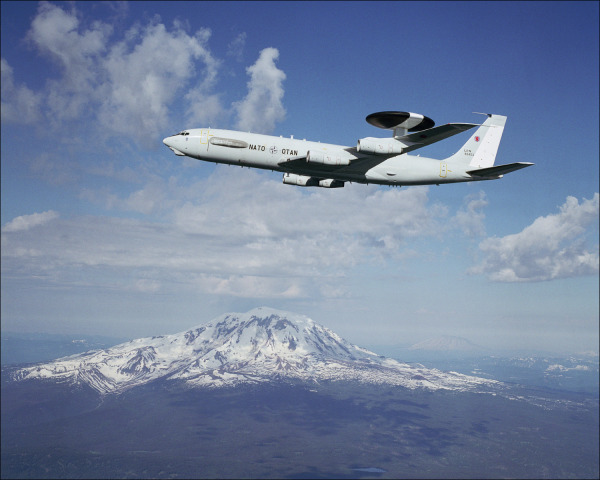 Specialist, Precision Measurement Equipment Laboratory Specialist, Electronic Warfare Specialist so I picked eight and went on about my business of becoming an Airman. When I found out that I got the sixth pick of the eight Iisted, I will admit that I was a little disappointed but Airborne Warning and Control Systems Radar Specialist didn't sound that bad. The one thing I did notice was that most of the aircraft I would work on were in Oklahoma City, OK and I was from Tulsa, OK. So much for seeing the world, I thought. Boy, was I ever wrong on that! Specialist, Precision Measurement Equipment Laboratory Specialist, Electronic Warfare Specialist so I picked eight and went on about my business of becoming an Airman. When I found out that I got the sixth pick of the eight Iisted, I will admit that I was a little disappointed but Airborne Warning and Control Systems Radar Specialist didn't sound that bad. The one thing I did notice was that most of the aircraft I would work on were in Oklahoma City, OK and I was from Tulsa, OK. So much for seeing the world, I thought. Boy, was I ever wrong on that!
After a ten month Technical School down at Keesler AFB, MS, I found myself at Tinker AFB, OK in April 1988. Learning my five-level tasks came fast, and in November 1988 I found myself selected for my first deployment to Riyadh, Saudi Arabia in support of the Iran-Iraq War. We ended up pretty much closing down operations while I was there little did I know at that time that wouldn't be the end of my time on the Arabian Peninsula.
After a few short years, I knew I had found what I was looking for, so after I made Sgt and all the confidence that came with it, I applied for Field Training Detachment (FTD) Instructor duty. I was reasonably sure I got the position immediately before I deployed to Turkey once more in September of 1993 and then I got the message that I had orders to Elmendorf AFB, AK. There went my actual career 'plans' now, it was just time to react and make some lemonade. After a slow start (my wife was unable to join me for six months), Alaska grew on both of us, and although the mission didn't seem that tough, there was always something to do in Alaska that we enjoyed, which would become very important in later life. :-) We extended until August 1998, when Tinker AFB once again brought us back and put me to work in the newly reorganized Radar Shop as Shift Lead. I enjoyed doing that for a little while, but once I was informed that I had made Technical Sergeant, I was approached by the Field Training Detachment and encouraged to apply again this time, I hadn't been on station long enough to get orders anywhere else, so the move was approved without issue. The FTD turned out to be a fantastic experience for a four-year controlled tour; it was a tremendous career-broadening experience that led me to care about making the next rank.
After the FTD posting was done, I returned to the Radar Shop as a MSgt-select, where I was placed in the position of Co-Section Chief for the Flightline Radar Section of approximately 160 Airmen. It was an awesome and humbling responsibility, with a lot of long work hours, but it was another career-broadening position that really got me ready to serve in my next posting with NATO. I was selected to fill the position of Avionics Superintendent in the sleepy little Army-administered post known as SHAPE near Mons, Belgium. Without this assignment, I am certain that I would have retired as a MSgt at the 20-year mark, as I felt I had done nearly all I could and had made my career goal already. But the international flavor of the assignment to SHAPE opened up a whole new perspective for me, and fueled the fire for several more years of service, as well as another stripe. Once I was ready to rotate back to the States, there were only two real choices for a SMSgt coming back from overseas. Travis and McGuire (both have KC-10s, so we chose the base that was closer to Alaska). I served as Lead Production Superintendent for almost the entire time I was assigned to Travis, and the two deployments to the Arabian Peninsula while stationed in Northern California that bookended my career were exactly what I needed for me to feel the closure on my Air Force service.
DID YOU PARTICIPATE IN COMBAT OPERATIONS? IF SO, COULD YOU DESCRIBE THOSE WHICH WERE SIGNIFICANT TO YOU?
That depends on who you are talking to, I suppose. Some folks view that aircraft maintenance people don't participate in combat operations because they don't go out beyond the wire with a rifle and get shot at/shoot at the enemy. If that is your view, then I'll just say that I was never fired upon by small arms from an enemy force while I served.
However, as aircraft maintainers, we often put ourselves in a different variation of 'harm's way' and we certainly do deploy often to flat, desolate, and sandy places at a moment's notice to take care of the mission (which usually ends up being providing air cover for those folks who are being actively fired upon). I actively and closely supported combat operations in the First Gulf War (Desert Storm), Operations Enduring and Iraqi Freedom, Operation New Dawn, and JTF Horn of Africa. Sure, in the final analysis, all we did was repair and generate aircraft to support someone elses direct combat operations. But I'd like to think that, occasionally, there were folks on the ground watching the enemy or an enemy target vanish in a large cloud of dust that were happy with the job we did.
FROM YOUR ENTIRE SERVICE CAREER WHAT PARTICULAR MEMORY STANDS OUT?
Losing friends and colleagues always leaves a most lasting impression. The memory that stands out for me as the most meaningful, yet also the most haunting, is the loss of AWACS aircraft 77-0354 and all souls aboard back in September 1995. For those that do not remember, this aircraft was departing on a routine Friday morning training mission over Alaska when it encountered a large flock of Canada Geese immediately after breaking ground from the Elmendorf runway. A large number of geese were ingested into the two left engines, disabling each one, and the wounded aircraft barely had enough power to continue to fly more than a mile, crashing into the trees north-northwest of the main runway. The aircraft was a total loss, and none of the 24 crew members survived, including two very good friends of mine who I had just grilled out with earlier that week. This event was the single most sobering moment of my career. It made me realized just how important an aircraft maintainer's job can be and what the overarching consequences of our work might be, and it also helped me realize that, no matter how hard you try, there may be life-and-death events that occur that you just can't influence or change, regardless of how well you know your job or how hard you try.
OF THE MEDALS, AWARDS AND QUALIFICATION BADGES OR DEVICES YOU RECEIVED, WHAT IS THE MOST MEANINGFUL TO YOU AND WHY?
The maintenance badge I wore every day was the item I always took the pride in. In fact, it never ceased to amaze me that Airmen of any rank wouldn't take pride in the accomplishment and designation of their career path. Yet some didn't care to wear it proudly.
Probably the 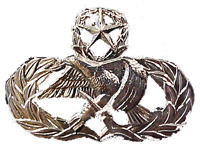 most meaningful single event medal was the sole Air Force Achievement Medal I received for crawling into an enclosed aircraft space and putting out a component fire. Now that I look back on the incident and break it down, I probably could have been reprimanded just as easily for being careless with my life, as my wingman and I grabbed fire extinguishers, got ourselves into position in the enclosed and isolated radar radon, and then fought the fire without the benefit of oxygen masks. I suppose I am lucky that it all ended well. most meaningful single event medal was the sole Air Force Achievement Medal I received for crawling into an enclosed aircraft space and putting out a component fire. Now that I look back on the incident and break it down, I probably could have been reprimanded just as easily for being careless with my life, as my wingman and I grabbed fire extinguishers, got ourselves into position in the enclosed and isolated radar radon, and then fought the fire without the benefit of oxygen masks. I suppose I am lucky that it all ended well.
More meaningful overall to me are the SouthWest Asia Service Medals and Expeditionary Service Ribbons that I wore. My time overseas taking care of aircraft and people on the Arabian Peninsula was by far the most significant, and certainly more sustained and memorable, service during my career.
WHICH INDIVIDUAL PERSON FROM YOUR SERVICE STANDS OUT AS THE ONE WHO HAD THE BIGGEST IMPACT ON YOU AND WHY?
Turns out that someone from very early in my career, a flightline Expediter named MSgt John Karawick, ended up being my greatest influence. The sad part is that he isn't around any more to thank, as he passed away while I was still a young Airman. MSgt Karawick was one of the chain-smoking, hard-nosed, hard-driving, get-it-done kind of SNCOs that Airmen either love or hate. Taken strictly on outward appearances, he seemed like he was a brusque, all-business type. But once you worked for him awhile (and listened), one began to figure out that he cared deeply not only for fixing aircraft and getting the mission done, but also for making sure his Airmen were taken care of. Importantly, he wasn't one to tolerate mediocrity, either. I always enjoyed it when he drove; everyone stayed busy, and a lot got done every shift. And when you left work that day, you really felt that your job mattered!
WHAT PROFESSION DID YOU FOLLOW AFTER THE SERVICE AND WHAT ARE YOU DOING NOW? IF CURRENTLY SERVING, WHAT IS YOUR CURRENT JOB?
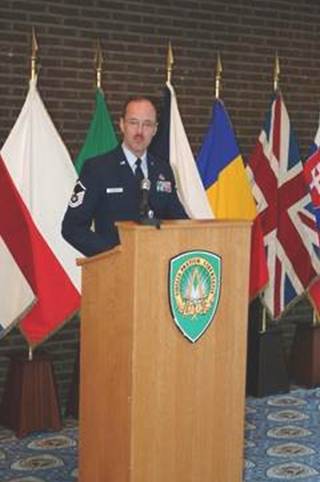 As I write this, I am transitioning between military and civilian life, so I will likely revisit this section and update it after several months or so. Technically, I am still active duty right now, but how often do folks get called back while they are on final leave? With regard to what I will do with my life after the service, it is a path as yet undecided and one that I am not in any particular hurry to choose at this stage of the game. But I will surmise that won't last long! As I write this, I am transitioning between military and civilian life, so I will likely revisit this section and update it after several months or so. Technically, I am still active duty right now, but how often do folks get called back while they are on final leave? With regard to what I will do with my life after the service, it is a path as yet undecided and one that I am not in any particular hurry to choose at this stage of the game. But I will surmise that won't last long!
WHAT MILITARY ASSOCIATIONS ARE YOU A MEMBER OF, IF ANY? WHAT SPECIFIC BENEFITS DO YOU DERIVE FROM YOUR MEMBERSHIPS?
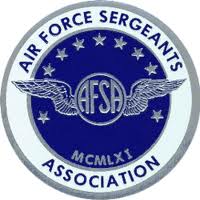 I have been a life member of the Air Force Sergeants Association and the Veterans of Foreign Wars for several years now. AFSA as an organization has great value to both active duty and retiree, as having a voice in Washington with regard to military matters, especially with an enlisted focus, cannot be a bad thing! And although moving up to Alaska means I finally have to settle on one VFW post to be affiliated with, I look forward to the fellowship with many other like-minded veterans and continuing to honor the service of those who have gone before us, as well as those who will wear the uniform today and tomorrow. I have been a life member of the Air Force Sergeants Association and the Veterans of Foreign Wars for several years now. AFSA as an organization has great value to both active duty and retiree, as having a voice in Washington with regard to military matters, especially with an enlisted focus, cannot be a bad thing! And although moving up to Alaska means I finally have to settle on one VFW post to be affiliated with, I look forward to the fellowship with many other like-minded veterans and continuing to honor the service of those who have gone before us, as well as those who will wear the uniform today and tomorrow.
HOW HAS MILITARY SERVICE INFLUENCED THE WAY YOU HAVE APPROACHED YOUR LIFE AND CAREER?
I was a pretty methodical type anyway, but I am certain that both job and career-wise, the Air Force made me even more methodical at least as far as my planning and expectations. What it really did for me was prepare me for all those times when the planning just can't make it to fruition which was quite often. I have learned to be very open and adaptable; even if it isn't my most desired way to go, it is often the only way to go. I have little doubt that my Air Force experience opened up entirely new social and leadership aspects of my life that would likely not have existed otherwise, yet, I cannot imagine my life going as well without them.
WHAT ADVICE WOULD YOU HAVE FOR THOSE THAT ARE STILL SERVING?
First and foremost, learn your job and learn it well, even if it isn't what you thought it should be when you joined. Once you have mastered it, if you lack challenge or crave change, then start looking around for ways to alter or enhance your career.
Additionally, if you find the Air Force (or any military service) just doesn't seem to be for you, don't pretend that it is. Above all, you have to be true to yourself. Sure, your country and comrades in arms will 'get by' with service that is less than 100%, but neither of them deserve service that is anything less than 100%.
IN WHAT WAYS HAS TOGETHERWESERVED.COM HELPED YOU MAINTAIN A BOND WITH YOUR SERVICE AND THOSE YOU SERVED WITH?
AFTWS seemed like a really good idea since it was announced so many years ago.It was such a shame it took so long to be 'tolerated as necessary' by Air Force leadership, much like any of the social networking sites. I have enjoyed and will continue to enjoy meeting and hearing from folks of all ages from all over our country that have served and have the common bond of that service. It is truly awesome to meet so many high-caliber folks and share such a large spectrum of experiences with them!
DMR
| 
SMSgt Alan Pongratz
View SMSgt Alan Pongratz's Shadow Box on TWS
|
|
Share this Voices Edition on:


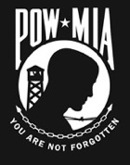
 |
|
TWS VOICES
TWS Voices are the personal stories of men and women who served in the US Military and convey how serving their Country has made a positive impact on their lives. If you would like to participate in a future edition of Voices, or know someone who might be interested, please contact Major Wesley Prater HERE.
This edition of AirForce Voices was supported by:
AirForce.Togetherweserved.com
For current and former serving Members of the United States Air Force, Army Air Corps, Air Force Reserve and Air National Guard TogetherWeServed is a unique, feature-rich resource helping Airmen reconnect with lost Wingmen, share memories and tell their Air Force story.
To join AirForce.Togetherweserved.com, please click HERE.
|
|